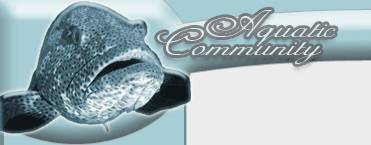Antennata Lionfish
Pterois antennata

Pterois antennata belongs to the family Scorpaenidae, the scorpionfish family. This species is known under many different names in English, such as Antennata Lionfish, Spotfin Lionfish, Banded Lionfish, Broadbarred Firefish, Ragged-finned Firefish, Rouhg-scaled Firefish, and Scorpion Miles.
Pterois antennata has not been evaluated for the IUCN Red List of Threatened Species.
Geographical range, habitat and habits
The Antennata Lionfish is found in the Indo-Pacific. Its native range stretches from eastern Africa to Mangareva and the Marquesas Islands in French Polynesia. Its northern limit is found south of Japan, while its southern limit goes through the waters off Queensland, Australia and the Kermadec Islands of New Zeeland.
This species can be found down to a depth of 50 meters / 165 feet. It is typically found in lagoons and seaward reefs where it lives alone or joins a group. This is a nocturnal species that hunts during the night and rests in crevices under rocks and coral formations during the day.
Size and appearance
The largest scientifically measured Antennata Lionfish was 20 cm / 7.9 in.
The body is reddish or tan coloured with numerous dark bars. The median fins are adorned with scattered dark spots. Above the eye, you can see a long tentacle (antennae) with dark banding. Adult fish have bluish-black markings close to the pectoral fin base. The pectoral fins are large and fan-shaped. The dorsal fins are tall and quill-like.
This fish has venomous spines in its dorsal, pelvic and anal fins.
Antennata Lionfish care
The Antennata Lionfish is a semi-aggressive species. It is considered reef safe with caution. Housing it in an aquarium smaller than 30 gallons / 115 litres is not advisable. Include plenty of suitable hiding spots in the aquarium. In the wild, this fish likes to hide in crevices formed by rocks and corals, and it will need similar hiding spots in the aquarium to feel safe. It can become exceedingly shy and withdrawn when placed in a new aquarium, but if you provide it with plenty of hiding spots it will eventually become braver and braver and spend more time out in the open.
The recommended water temperature for Antennata Lionfish is 72-78º F / 22-25.5º C. Keep the pH-value within the 8.1-8.4 range and the specific gravity at 1.020-1.025.
Be very careful during maintenance work in the aquarium, because the spines of this fish can deliver a powerful sting. The sting feels similar to being stung by a really powerful wasp. If you are allergic to the venom, you may suffer from a serious reaction. Prompt medical attention should therefore always be sought after an Antennata Lionfish sting. Until you receive medical attention, keep the affected area in really hot water. (As hot as you can without burning yourself.)
Feeding Antennata Lionfish
The Antennata Lionfish is a carnivore species that should be provided with a meaty diet in the aquarium. You can for instance give it live fish, live crabs and different types of live shrimps. It is important to keep the diet varied. Some specimens can be trained to accept crustacean flesh.
Breeding Antennata Lionfish
The Antennata Lionfish is an egg-laying species.
Lionfish articles:
Lionfish - An introduction to lionfish.Fu Manchu Lionfish – Information in how to care for Dendrochirus biocellatus
Dwarf Lionfish – Learn to care for Dendrochirus brachypterus
Zebra Lionfish – A guide to keeping Dendrochirus zebra
Radiata Lionfish – Learn to care for Pterois radiata
Red Volitans Lionfish – How to keep and breed Pterois russelli
Volatins Lionfish – How to keep, care for and breed Pterois volitans
